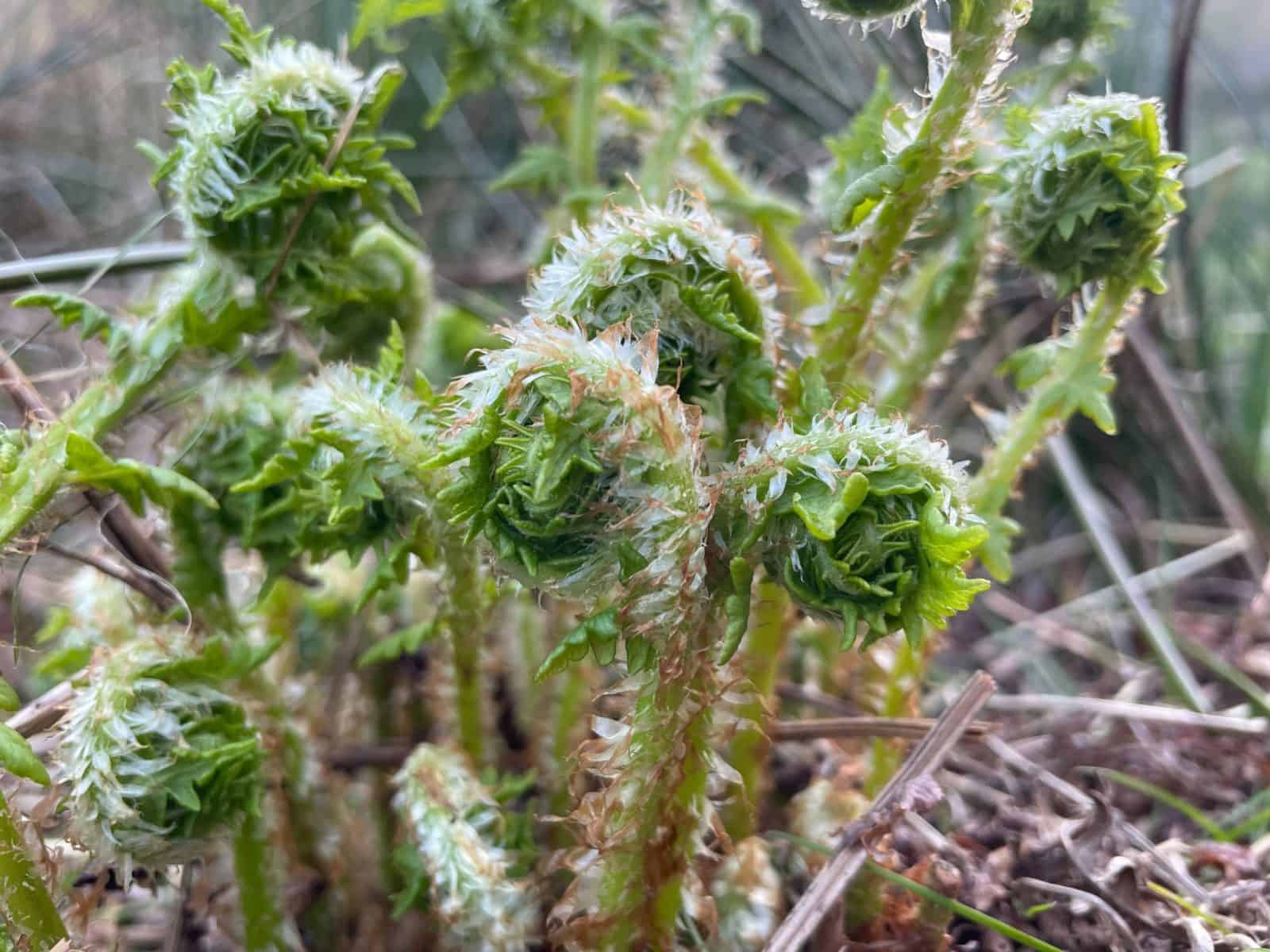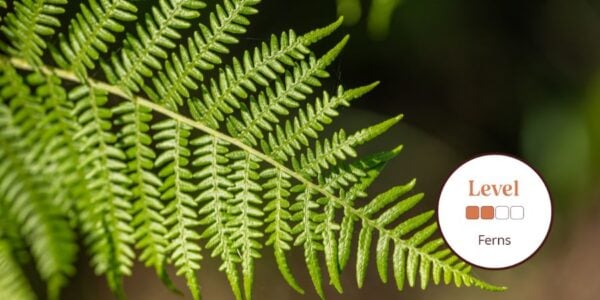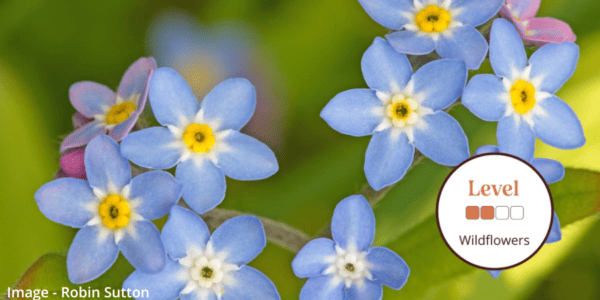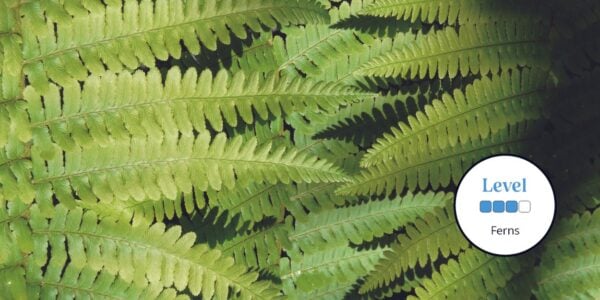This beginner online course will introduce you to the complex world of ferns.
Ferns are a common sight on a woodland walk, but have you wondered what species you are seeing? Ferns are vibrant non-flowering plants and reproduce via spores. With a diverse variety of species in the UK, there is much to explore!
What is covered in this course?
- What is a Fern?
- Fern Biology
- Fern Ecology
- Introduction to Identification
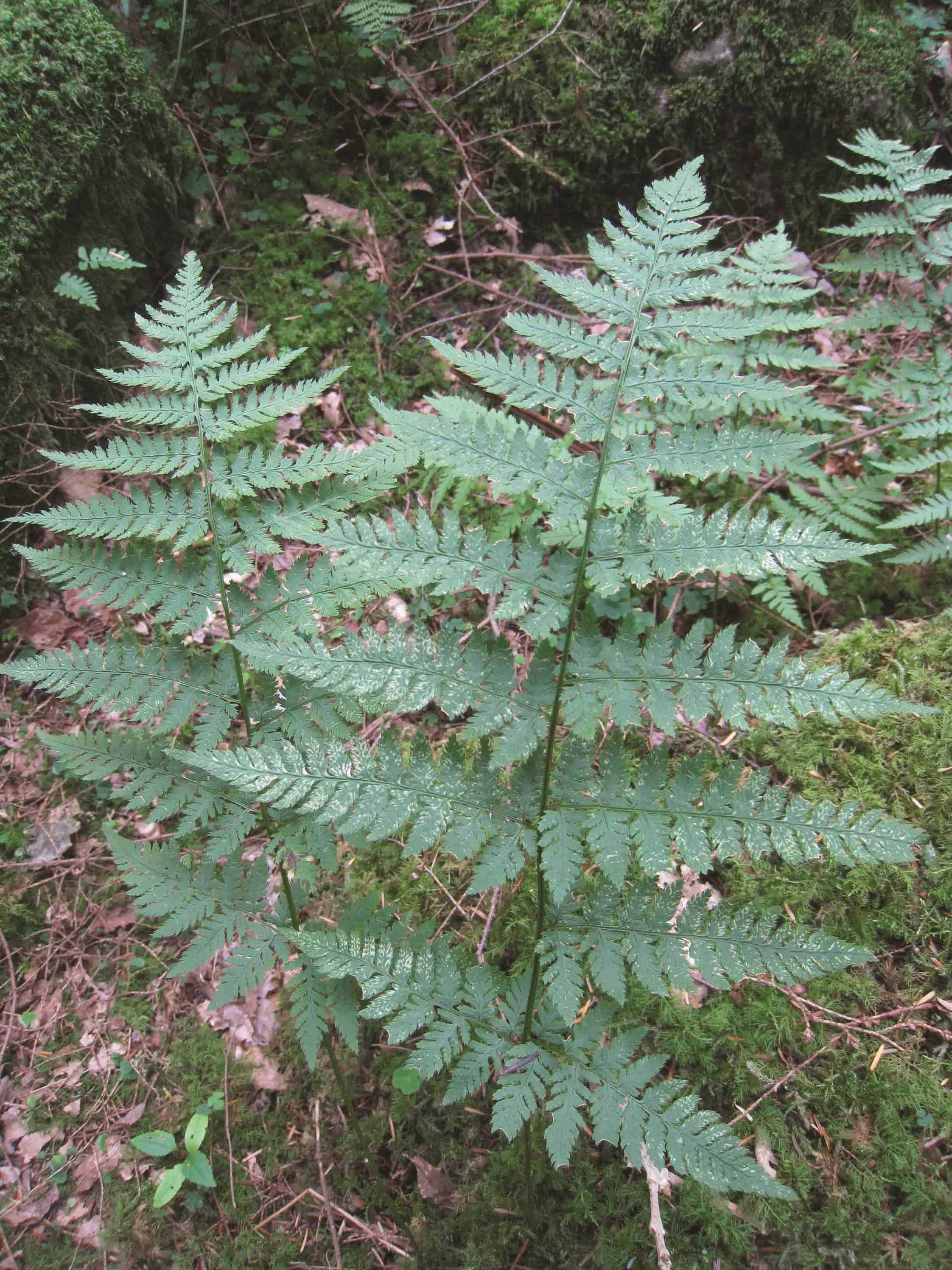
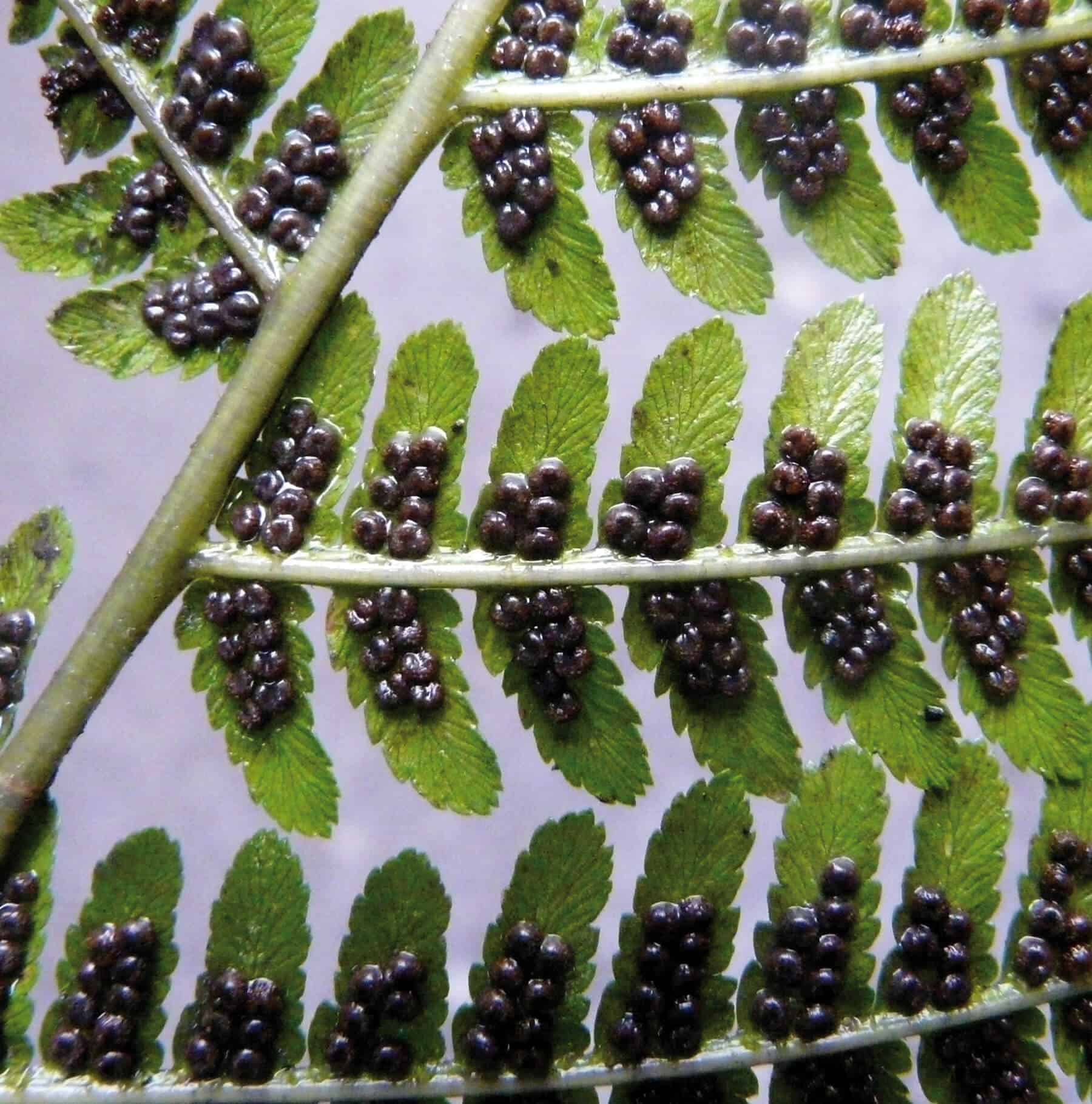
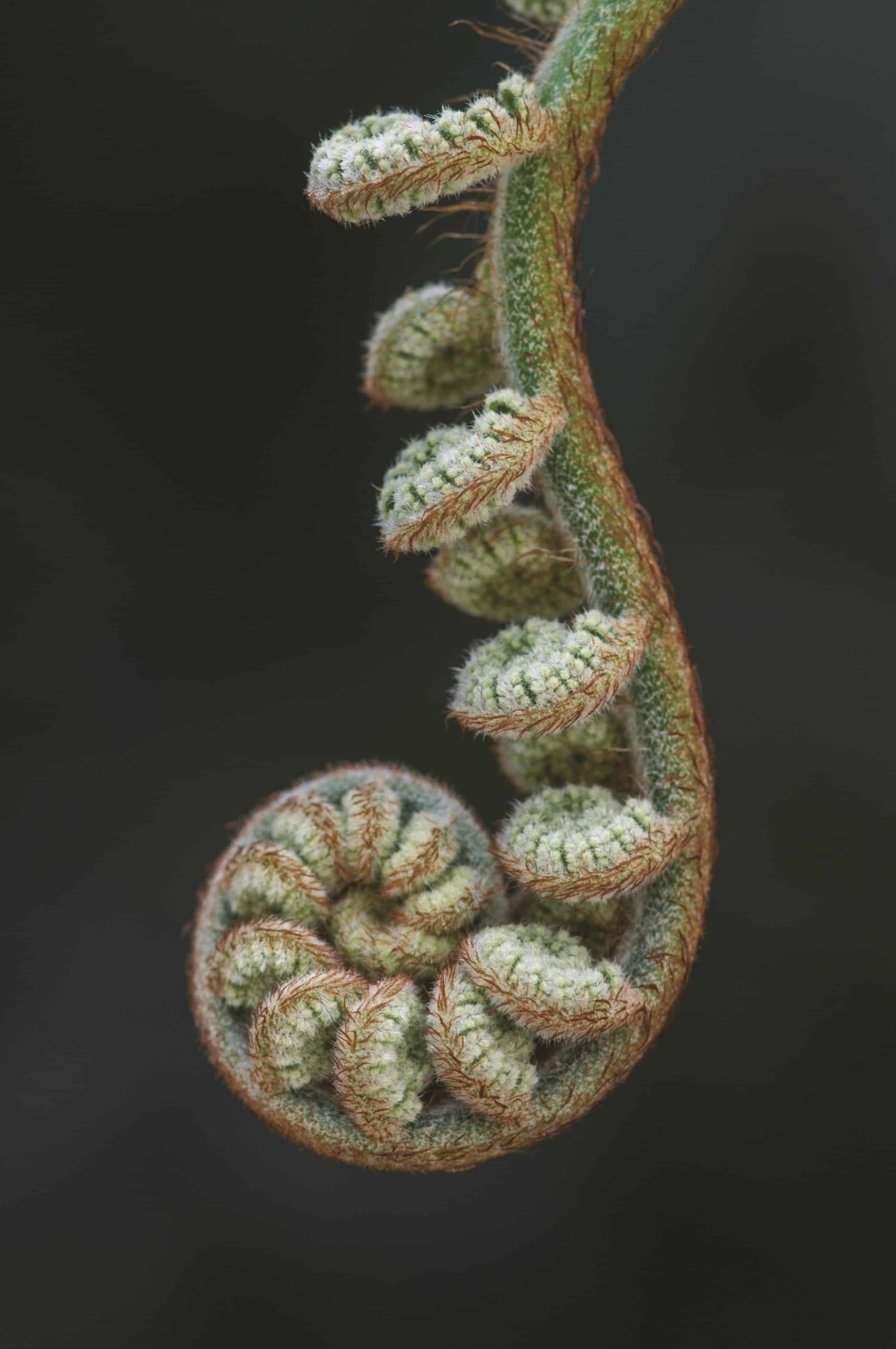
Read More
This course is an introduction to the fern species found in the UK. The course covers their biology, ecology and where you can find them. Focusing on their key features such as fronds, spores and structure. There are plenty of opportunities for you to get outside and put your newfound knowledge into practice, alongside guidance from an expert tutor. The course is at a beginner level and is a great place to start for those with a botanical interest who are thinking about taking their first steps into fern identification.
This is a 3-week online course covering 3 topics, for which you will complete a variety of self-led online resources and activities. Each topic is then concluded with either an interactive Zoom workshop or a marked assignment to complement the online content. Time commitment is approximately 2-3 hours a week and an E-certificate is provided upon completion.
Who Should Attend? – Nature enthusiasts, Students, Rangers, Early career ecologists.
Knowledge Level – Beginner. Level descriptors can be found on the following webpage: Framework and Course Level Descriptors
Prior Knowledge – Existing knowledge and understanding of basic plant terminology would be beneficial for this course.
Recommended Devices
It is recommended that you access your course through a PC or laptop. Please be aware that there will be reduced functionality if you decide to access the course through a tablet or smartphone. The Field Studies Council is unable to email content directly to you.
By the end of the course, you will be able to:
- Explain how ferns and their allies are different from other plants
- Understand the structure/biology of ferns and their life cycle
- Understand fern ecology and where to find ferns and their allies in their natural habitats
- Distinguish key features needed for identification and become familiar with 10 common species
- Share this knowledge with friends, family and fellow volunteers.
Please note that bookings will close 2 working days before the start date to allow for all participants to be enrolled to the online platform – booking will not be taken after this time. Bookings will close sooner if course capacity is reached.
Understand how our online courses are delivered.
Live Webinar Information
There are 3 webinars for this course, taking place at the end of each week. Please see the date listing below for the day and time.
Please note – webinars will be recorded and uploaded to the virtual learning platform for learners unable to attend.
About the Tutor
This course is delivered by more than one expert tutor. Your tutor will depend on the location of the course you book.
Derek Green
Although Derek’s principal area of interest is botany, he has a keen interest in all aspects of wildlife and ecology. A former college lecturer, teaching ecology and conservation, he now works as a founding Director of Budding Nature CIC, a Cornwall-based Community Interest Company that aims to increase public awareness and understanding of the natural world and to equip people with the knowledge and skills to participate in its protection. He is a highly experienced designer and deliverer of natural history workshops, creating and hosting events for a broad range of conservation and educational organisations, including Cornwall Wildlife Trust, Penwith Landscape Partnership, Dynamic Dunescapes Cornwall, Isles of Scilly Wildlife Trust, Plantlife, the National Trust, the University of Exeter and Newquay Community Orchard.
Henry Miller
I am a botanist working at Kew Gardens on projects relating to the conservation of tropical plants in Uganda as well as producing extinction risk assessments for Ethiopian species. Outside of work I am involved in the Botanical Society of Britain and Ireland and the London Natural History Society, I volunteer with these organisations to record and identify a wide range of plants.
Example Timetable
Week 1: What is a Fern?
Self-study material available at the course start date
Week 1 live webinar
Week 2: Fern Biology and Ecology
Self-study material available after Week 1 webinar
Week 2 live webinar
Week 3: Introduction to Fern Identification
Self-study material available after Week2 webinar
Week 3 live webinar
The final deadline to complete any outstanding activities and self-study components is 2 weeks after the week 3 webinar
Time commitment: This course will require approximately 2-3 hours of your time each week. This includes covering course materials on our Moodle learning platform and the Zoom session.
What's Included
The course has been carefully created to help you continue to build and develop your knowledge as the course progresses. With content crafted to the online Moodle Platform and bespoke to the Field Studies Council.
The course includes:
- 45-minute interactive weekly Zoom workshops to connect with the tutor and other participants
- Expert tuition for which the Field Studies Council is renowned
- Activities to work on independently in advance of each Zoom workshop
- Tailored course completion certificate
Once registered, you will follow well-illustrated, user-friendly ’books’ to pick up knowledge. Quizzes and skill checks will give you instant feedback on your learning. Forums give students the chance to interact with each other as well as a place to share work.
You can rest assured that the absolute best content from an expert in environmental education will be at your fingertips. In choosing a Field Studies Council course, you will be joining thousands of people who learn with us each year.
Bursaries and Subsidies
Student Discount
This course is eligible for a student discount. If you are a current student, please use discount code BioStudent20 at checkout for 20% off all Biodiversity courses.
Natural History Bursaries
There are a number of natural history bursaries available to help with the cost of your course. To find out if you and your chosen course are eligible, read more here.
Before You Attend
Accessing Your Course
- Once you sign up you’ll receive an email at least 24 hours in advance of the course opening with details of how to access our easy-to-use platform, Moodle.
- Moodle can be accessed through a browser or an app.
- Webinars are via Zoom so you won’t need any new software to attend
Recommended Devices
It is recommended that you access your course through a PC or laptop. Please be aware that there will be reduced functionality if you decide to access the course through a tablet or smartphone. The Field Studies Council is unable to email content directly to you.
Recommended Equipment
The following is not mandatory but will help you within this course:
Hand lens
Opportunities to attend this course
-
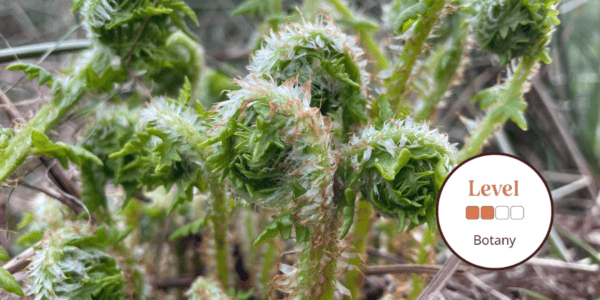
Tue 02, April 2024 - Tue 07, May 2024
The webinars will take place on Tuesdays 5:30 pm – 6:15 pm on the following dates:
- Week 1: 9th April 2024
- Week 2: 16th April 2024
- Week 3: 23rd April 2024
Sorry this course booking is closed
-

Thu 29, August 2024 - Thu 03, October 2024
The webinars will take place on Thursdays 1:00 pm – 1:55 pm on the following dates:
- Week 1: 5th September 2024
- Week 2: 12th September 2024
- Week 3: 19th September 2024
Progress Your Learning
This is a training course from the Field Studies Council, delivered by expert tutors with an approachable learning style. After attending this course, you may like to progress your learning with further relevant courses or branch out into other areas of natural history. The Field Studies Council offers both online and in person courses, so you can choose the learning style that suits you best.
The course gives you the opportunity to immerse yourself in a new subject and acquire novel skills. Our online portal gives you time to study at your own pace and fit the lessons around your own schedule.
If you have any questions about our online courses please check our Frequently Asked Questions
Please email [email protected] if you have any questions.
Group Bookings Made Easy
If you have a group of 10 or more individuals wanting to complete one of our courses, our team are available to discuss your options – from discounts to private team courses. Find out more!
You can rest assured that the absolute best content from an expert in environmental education will be at your fingertips. In choosing a Field Studies Council course, you will be joining thousands of people who learn with us each year.

